Kiran Bhat was born in Jonesboro, Georgia to parents from villages in Dakshina Kannada, India. An avid world traveler, polyglot, and digital nomad, he has currently traveled to more than 130 countries, lived in 18 different places, and speaks 12 languages. He currently lives in Melbourne, Australia.
Website → http://iguanabooks.ca/
5 Things You Should Know About we, of the
forsaken world
1) we, of the forsaken world... came to me in 2011, when I was on a bus between Dubrovnik and Zagreb. A tall, brunette woman with a lingering stare sat down
next to me on one of the stops. We began to talk about a host of things I can’t
remember now, but the one thing that she told me which did remain in my head
was the following: Croatia is one of the poorest countries in the world. Something about that sentence inspired my imagination.
After we reached the bus station, I had to sit on one of the metal benches for
a few hours, and write. I was starting to imagine different countries,
completely imagined in my head. One was a half-rich half poor megalopolis, the
sort found in most third-world countries. Then, there was a town that wasn’t so
different looking from my grandmother’s place, the southern Indian city of Mysore. There was a tribe in the middle of nowhere, not to
mention a town of great touristic importance, destroyed by an industrial spill.
I also imagined hundreds of voices. Though, over the course of time, those two
hundred-so voices became around sixteen; the most distinct and boisterous of
the lot.
2) I consider we, of the
forsaken world... as another example of a growing field of literature which
seeks to use a polyphony of voices and narratives to represent a flooding of
globalised narratives. I think anyone who likes to be overwhelmed by narrative
and richness of voice would like my book.
3) I’m an Indian-American
queer who has lived in 18 corners of the world, been to 132 countries, and
speaks 12 languages. None of this is overtly mentioned in we, of the forsaken world... but I do think a lot of my selfhood
can be incidentally gleamed in the narratives.
4.) I
think in English, feel in Kannada, live in Spanish, and wish to marry into
Mandarin.
5.) I
wish to connect to every one of the 7 billion people of the planet, and use
literature as my field to do so. I imagine myself as Alexander the Great, about
to conquer the world.
inside the book
The Internet has connected – and continues to connect – billions of
people around the world, sometimes in surprising ways. In his sprawling
new novel, we of the forsaken world, author Kiran Bhat has turned the fact of that once-unimaginable connectivity into a metaphor for life itself.
In, we of the forsaken world, Bhat follows the fortunes of 16 people who live in four distinct places on the planet. The gripping stories include those of a man’s journey to the birthplace of his mother, a tourist town destroyed by an industrial spill; a chief’s second son born in a nameless remote tribe, creating a scramble for succession as their jungles are destroyed by loggers; a homeless, one-armed woman living in a sprawling metropolis who sets out to take revenge on the men who trafficked her; and a milkmaid in a small village of shanty shacks connected only by a mud and concrete road who watches the girls she calls friends destroy her reputation.
Like modern communication networks, the stories in , we of the forsaken world connect along subtle lines, dispersing at the moments where another story is about to take place. Each story is a parable unto itself, but the tales also expand to engulf the lives of everyone who lives on planet Earth, at every second, everywhere.
As Bhat notes, his characters “largely live their own lives, deal with their own problems, and exist independently of the fact that they inhabit the same space. This becomes a parable of globalization, but in a literary text.”
Bhat continues: “I wanted to imagine a globalism, but one that was bottom-to-top, and using globalism to imagine new terrains, for the sake of fiction, for the sake of humanity’s intellectual growth.”
“These are stories that could be directly ripped from our headlines. I think each of these stories is very much its own vignette, and each of these vignettes gives a lot of insight into human nature, as a whole.”
we of the forsaken world takes pride of place next to such notable literary works as David Mitchell’s CLOUD ATLAS, a finalist for the prestigious Man Booker Prize for 2004, and Mohsin Hamid’s EXIT WEST, which was listed by the New York Times as one of its Best Books of 2017.
Bhat’s epic also stands comfortably with the works of contemporary visionaries such as Umberto Eco, Haruki Murakami, and Philip K. Dick.
Order Your Copy
In, we of the forsaken world, Bhat follows the fortunes of 16 people who live in four distinct places on the planet. The gripping stories include those of a man’s journey to the birthplace of his mother, a tourist town destroyed by an industrial spill; a chief’s second son born in a nameless remote tribe, creating a scramble for succession as their jungles are destroyed by loggers; a homeless, one-armed woman living in a sprawling metropolis who sets out to take revenge on the men who trafficked her; and a milkmaid in a small village of shanty shacks connected only by a mud and concrete road who watches the girls she calls friends destroy her reputation.
Like modern communication networks, the stories in , we of the forsaken world connect along subtle lines, dispersing at the moments where another story is about to take place. Each story is a parable unto itself, but the tales also expand to engulf the lives of everyone who lives on planet Earth, at every second, everywhere.
As Bhat notes, his characters “largely live their own lives, deal with their own problems, and exist independently of the fact that they inhabit the same space. This becomes a parable of globalization, but in a literary text.”
Bhat continues: “I wanted to imagine a globalism, but one that was bottom-to-top, and using globalism to imagine new terrains, for the sake of fiction, for the sake of humanity’s intellectual growth.”
“These are stories that could be directly ripped from our headlines. I think each of these stories is very much its own vignette, and each of these vignettes gives a lot of insight into human nature, as a whole.”
we of the forsaken world takes pride of place next to such notable literary works as David Mitchell’s CLOUD ATLAS, a finalist for the prestigious Man Booker Prize for 2004, and Mohsin Hamid’s EXIT WEST, which was listed by the New York Times as one of its Best Books of 2017.
Bhat’s epic also stands comfortably with the works of contemporary visionaries such as Umberto Eco, Haruki Murakami, and Philip K. Dick.












































































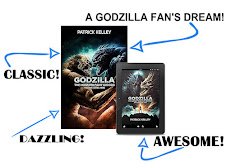










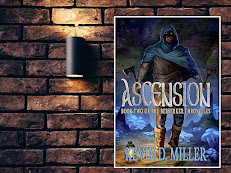





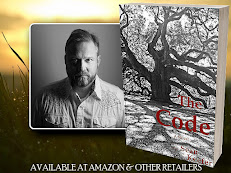





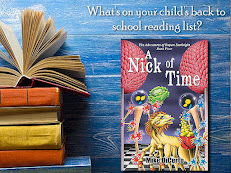




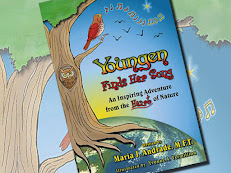






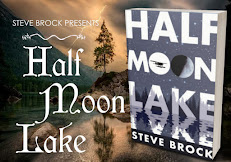











No comments:
Post a Comment
Thank you for your message!